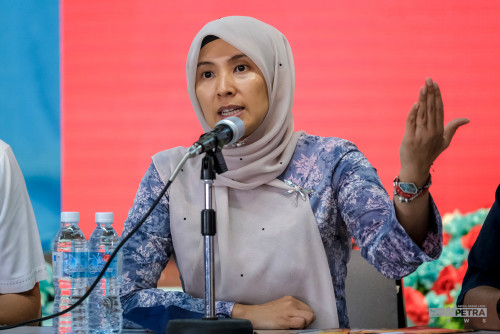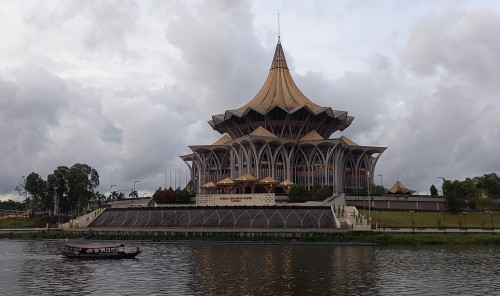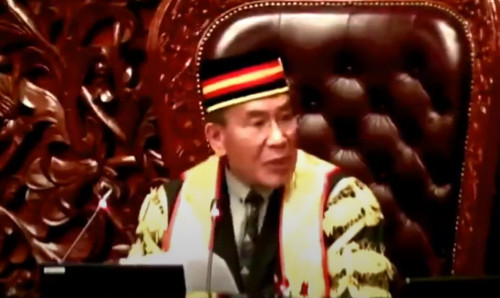“It’s a great huge game of chess that’s being played—all over the world—if this is the world at all.”
Lewis Caroll, Through the Looking-Glass
AS the pandemic spread swiftly across the land, a ghostly silence descended over our cities, our villages, our communities. Unseen and unheard, its disquieting presence now haunts every street corner and every home.
The pandemic collapses space and overturns time. It has forced us all into isolation yet relentlessly follows us everywhere through our black mirrors, occupying our consciousness and invading our innermost thoughts.
Thrown back upon itself, our world is suddenly strange. How are we to make sense of this moment, beyond the onslaught of headlines and new forms of control that seem like a great game of chess? How do we grapple with the uncertainty that stalks us in this terrible brave new world?
Unlike the inhabitants of Oran in Albert Camus’ The Plague, “a defunct city in which plague, stone, and darkness had effectively silenced every voice,” we are not condemned to silence. In Camus’ Oran, even correspondence through letters is forbidden for fear of contagion. Instead, we often find ourselves crippled by the too-muchness of communication.
Paradoxically, in our collective state of isolation, we are acutely overconnected – submerged in a meaningless surfeit of information, adrift in the noisy, narcissistic hollows of social media, while starved of true conversation and contemplation. Yet, for those who seek something more, all is not lost.
One realm that still nurtures engaged thought, open discussion, and artistic expression is literature, long known as ‘a mirror of our times’. In these troubled times of a pandemic that continues to ravage human life as we know it, the literary metaphor of a mirror takes on a deeper, more vital, significance. Literature is more essential than ever now, to urge us to reflect on this conjunction of existential catastrophe, political folly, personal tragedy and human courage that is still unfolding before us.
Mirror as metaphor
The metaphor of the mirror also evokes our present experience of living in an inverse reality. With its hypnotic powers of bending space and time, the mirror is a doorway to a topsy-turvy world, a plane of existence where nothing is quite what it seems.
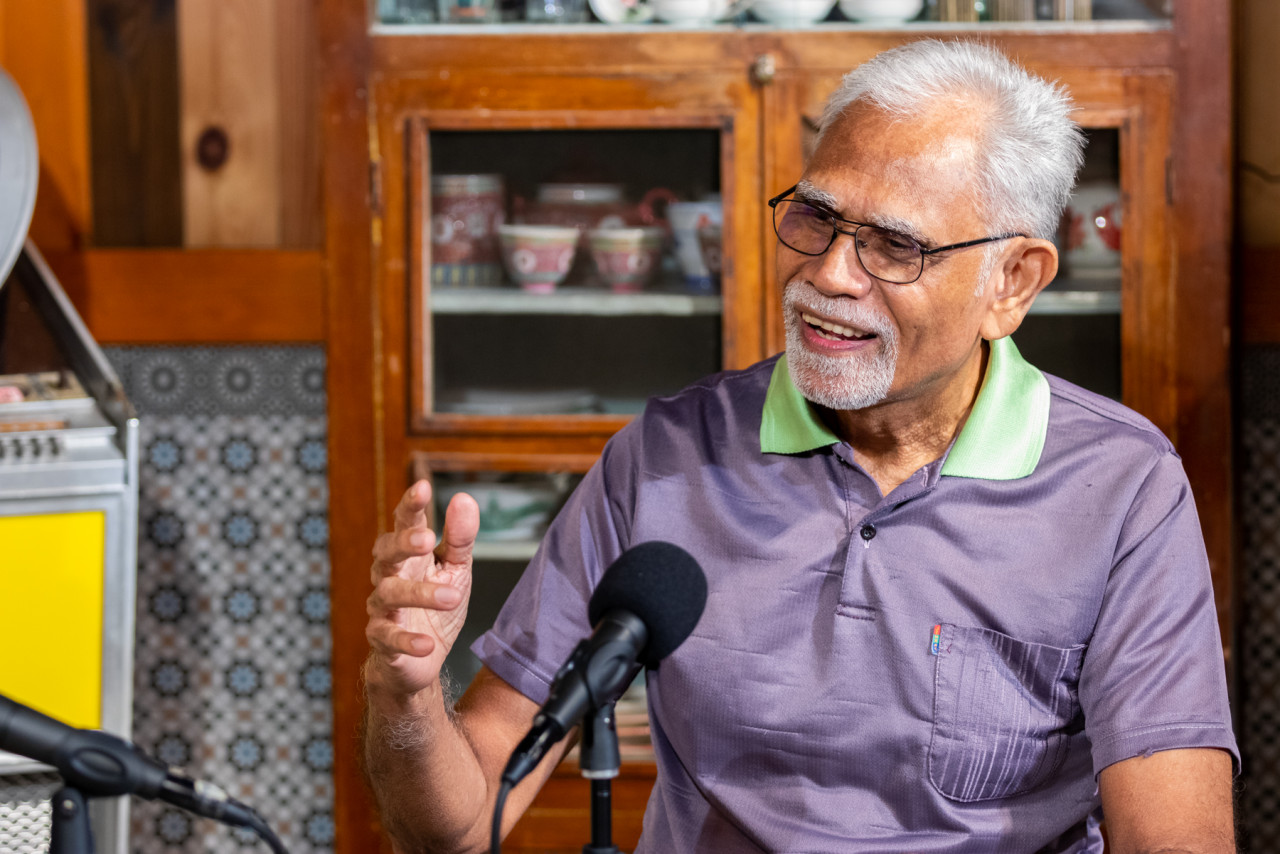
Nowhere is this mirror metaphor more prescient than in Lewis Caroll’s 1871 novel 'Through the Looking-Glass' – the sequel to 'Alice’s Adventures in Wonderland' – where Alice crosses the magic boundary of the mirror and enters an alternate reality. One of the first things Alice discovers on her journey ‘through the looking glass’ is a book of poetry with the words inscribed “in some language I don’t know”. She realises that she can only read it by holding it up to the mirror and reading it in reverse. Alice’s attempt to decipher a poem of mirror-writing illustrates the endeavour of literature itself to wrest meaning from the nonsensical.
The etymological root of the English word ‘mirror’ is the Latin ‘mīror’, which means to behold something in a state of wonder. The Latin word for mirror is ‘speculum’, which carries connotations of speculation and contemplation. It is natural, then, that the looking glass is associated with the virtues of physical, metaphysical, and spiritual reflection: it is a vessel of seeing, reading, writing, knowing and revelation.
In literature and art, a journey ‘through the looking glass’ at times symbolises a katabasis, an individual’s descent to the underworld, and a corresponding anabasis, a return to the world of the living imbued with new powers of perception and even immortality.
“Mirrors are the doors through which death comes and goes,” Death’s chauffeur tells the protagonist in Jean Cocteau’s 1949 film Orpheus, “Look at yourself in a mirror all your life, and you'll see death at work, like bees in a hive of glass.”
George Town Literary Festival 2020
It is with all these meanings and metaphors in mind that the George Town Literary Festival (GTLF) presents ‘Through the Looking Glass’ as our theme for 2020. Reflecting the GTLF’s liminal shift online, our theme contemplates the role of literature and art in a time of crisis. We explore the transformative power of art and literature, the limits of language, and the borders of the imagination.
‘Through the Looking Glass’ invites listeners to discover the other side of everything, where imagination has the power to alter reality. We explore how imagination transforms anxiety, fear, and trauma into hope, spirit, and resilience. While we turn our gaze to the wounds of the past and present, the Looking Glass is ultimately a crystal ball to the future – a place to dream and envision new possibilities.
Our line-up this year features 82 local, regional and international speakers, including award-winning Malaysian novelist Fatimah Busu, renowned Malaysian actress Sharifah Amani, and Penang-based dancer and choreographer Aida Redza. Our regional and international guests include the legendary Filipino writer F. Sionil Jose, 2020 SEA Write Award winner Leila Chudori, eminent historian Wang Gungwu, distinguished poet and translator Pierre Joris, indigenous Canadian curator and author Wanda Nanibush, French editor and translator Jérôme Bouchaud, and Singaporean playwright Alfian Sa’at.
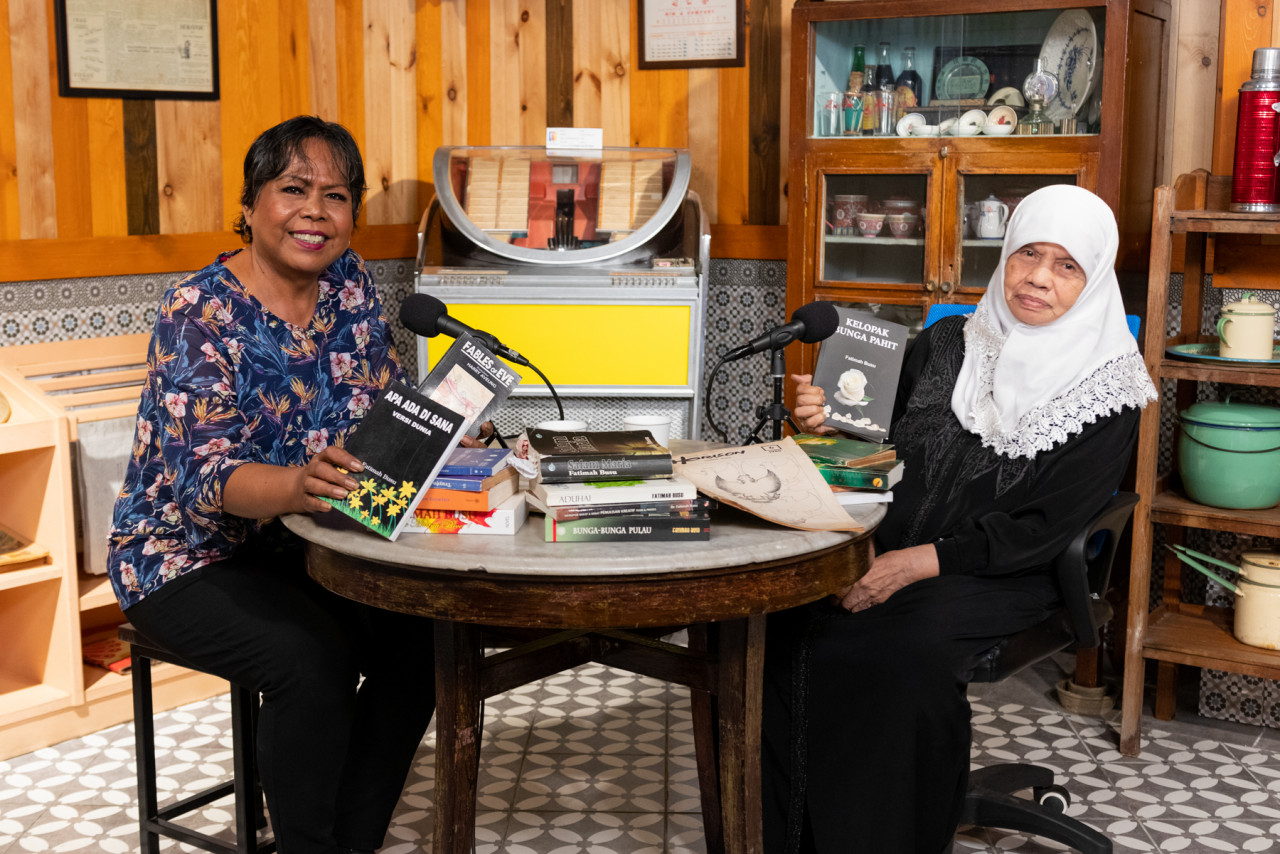
GTLF 2020 will offer a fresh, socially relevant programme, which includes a series of specially curated podcasts and videos in English and Bahasa Malaysia. These will take the form of conversations, discussions, and readings. Some programme highlights include Writing Peril in the Personal and Political featuring Leila Chudori and Danton Remoto, What Remains of the Light with German poet and translator Lea Schneider, Road Trips of the Imagination featuring Joshua Kam and Arif Rafhan, and Sastera Dalam Kurungan with Nirwan Dewanto.
Another highlight is a special podcast to celebrate the centenary of Paul Celan, one of the most important poets of the 20th century. We also pay tribute to the late K.S. Maniam, one of Malaysia’s most important writers, with a special reading of his work by celebrated actresses Jo Kukathas and Anne James.
GTLF’s programme partners this year include PEN Malaysia, presenting three conversations as part of Sembang Baru/New Conversations, and the Swadaya Collective of independent bookstores, presenting a series of online events with Swadaya x GTLF. We are also collaborating with the School of Arts, Universiti Sains Malaysia, to present The Healing Art Project, a programme that combines the power of music composition with therapeutic elements.
GTLF 2020 is curated by Festival Co-Directors Pauline Fan and Sharaad Kuttan, and Co-Curator Izzuddin Ramli, all of whom are deeply engaged with literature, culture and ideas. GTLF is supported by the State Government of Penang and produced by Penang Convention & Exhibition Bureau (PCEB).
This year, GTLF is partially funded by the International Relief Fund of the German Federal Foreign Office and the Goethe-Institut. GTLF’s partners this year include the Embassy of France, the Canadian High Commission, Kinokuniya, Tintabudi, Nusantara Audiobooks, Tun Perak Co-op, Penang House of Music, Epigram, and The Vibes.
Malaysia’s most prominent international literary festival, George Town Literary Festival was bestowed London Book Fair's Excellence Award for Best Literary Festival in 2018. The judges said of GTLF: “In a strong field, George Town Literary Festival stands out as a vibrant, diverse and brave festival that engages with a wide community of voices, speaking to the world from a complex region.”
We stand now before the pages of an unwritten chapter of human experience. The imposed distance that has redefined our lives offers us an interlude to collectively pause and rethink the nature of our being. It is time to ask ourselves existential questions about the place of humankind in the universe. What will we write, and how will our story unfold?
As we engage in meaningful reflection in these dark times, forging conversations to break through isolation and silence, may our hope be affirmed by literature’s powers of renewal. In the words of Albert Camus: “And indeed it could be said that once the faintest stirring of hope became possible, the dominion of plague was ended.” – The Vibes, November 22, 2020
For details, visit http://www.georgetownlitfest.com/



.jpg)


__part_of_UNBOXED__Creativity_in_the_UK_©_Dom_Whiting_(3).jpeg)
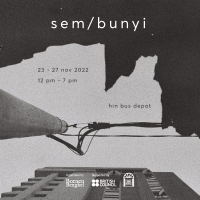
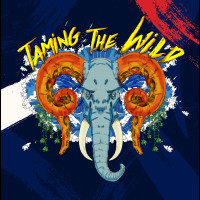
.jpg)
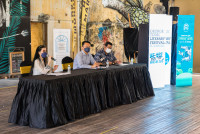
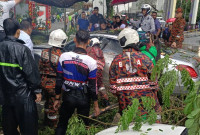
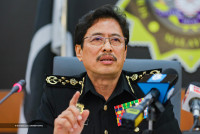
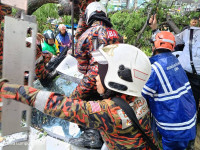
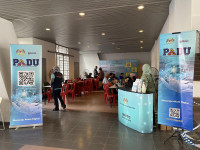
.jpg)
